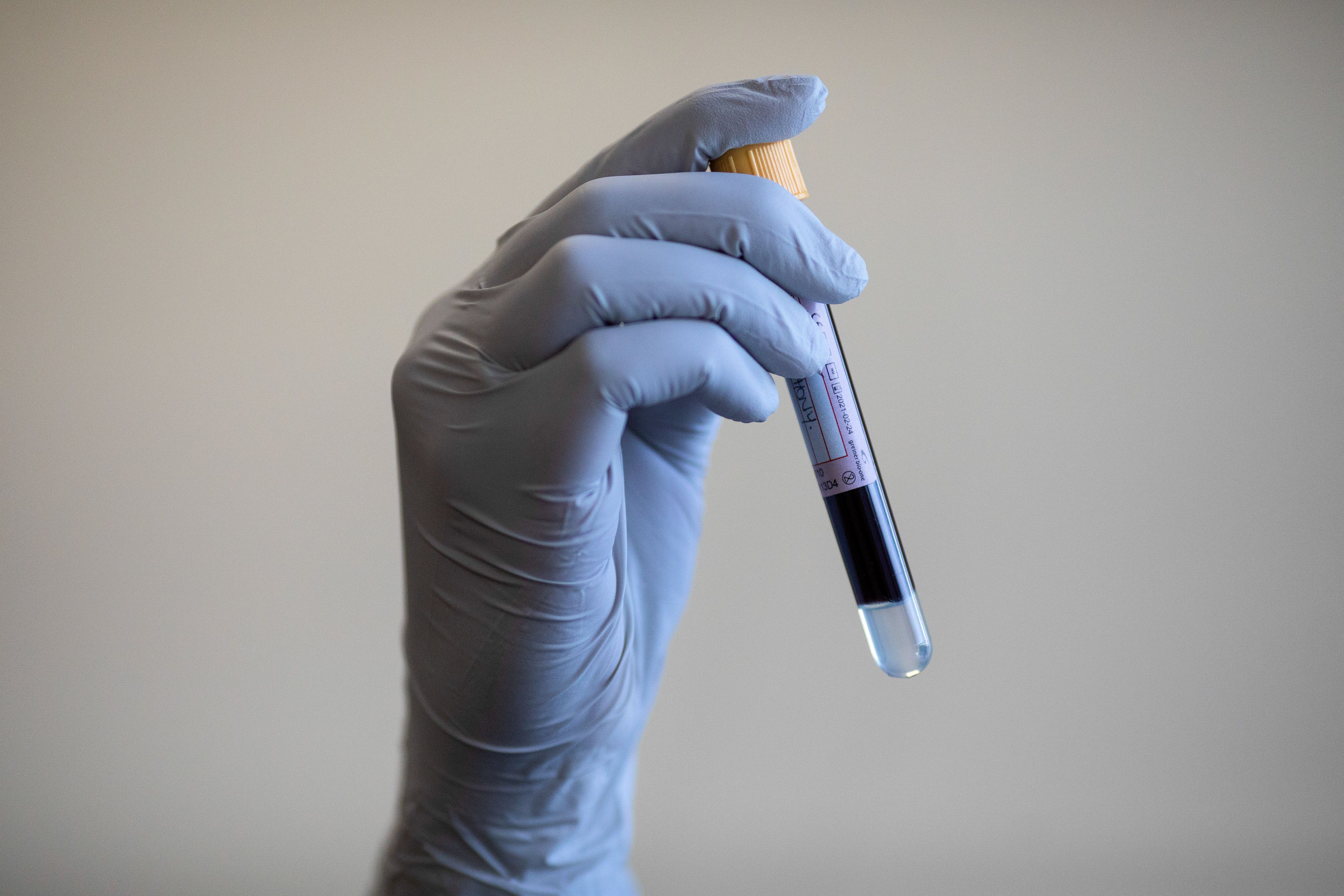Prostate cancer breakthrough as scientists pinpoint protein for treatment
The researchers estimate that around 10% of people with prostate cancer have high levels of this protein

Scientists have welcomed a breakthrough in the battle against prostate cancer.
Doctors have pinpointed a protein in the cancer which they hope could be a target for cancer treatment.
A team found that advanced prostate cancer patients with higher levels of the BCL2 protein have significantly worse outcomes than those without.
The new finding, from experts at the Institute of Cancer Research (ICR) in London, could improve treatments for men whose cancer is no longer responding to hormone therapy.
Men could be screened for BCL2 to develop personalised treatment plans, while medics could also look out for – or develop – new drugs that could work.
A prostate cancer clinical trial testing the BCL2 inhibitor venetoclax – a drug approved for types of leukaemia – with the hormone therapy enzalutamide has already begun.
The researchers estimate that around 10 per cent of people with prostate cancer have high levels of this protein, which is generally important for preventing cells dying.
Dr Adam Sharp, leader of the translational therapeutics group at the ICR and from the Royal Marsden NHS Foundation Trust, said: “We urgently need new treatments to help improve the quality and quantity of life for patients living with advanced prostate cancer.
“Our results have shown that there’s a large disparity in outcomes for people whose cancers have high levels of the BCL2 protein, and that their cancers respond less well to hormone therapies than others.
“Further research could provide evidence for more personalised treatment plans, as these cancers may respond better to docetaxel than enzalutamide or abiraterone.”

Johann de Bono, professor of experimental cancer Medicine at ICR and also from the Royal Marsden, said: “BCL2 is a protein that promotes cell survival, and we have shown that cancers with higher levels of the protein cause significantly worse outcomes for patients.
“If targeting BCL2 proves effective in clinical trials, patients with advanced prostate cancer will be able to look forward to better, personalised treatments.
“Our research has also suggested a combination strategy for therapies which should be explored and may prove even more effective than targeting BCL2 alone.”
Professor Kristian Helin, chief executive of the ICR, said: “We know that while a drug may keep one person’s cancer at bay for a long time, unfortunately it may quickly stop working in another person.
“Finding ways to tackle treatment resistance – and to provide alternatives earlier on – is essential.”
The new study was published in the Journal of Clinical Investigation.
Researchers examined 427 biopsies from 245 patients with metastatic castration-resistant prostate cancer (mCRPC) in two separate groups.
They found that patients with higher levels of BCL2 had a significantly shorter overall survival from the time of diagnosis of mCRPC, of 20.4 months compared with 53 months.
In the second group, they found a significant difference in response to common hormone therapy treatments, depending on the cancer’s level of BCL2.
The PSA level – a marker of prostate cancer – fell by more than 50 per cent in only 12.5 per cent of those with higher levels of BCL2, compared with 47.6 per cent of patients with lower levels.
The overall survival from starting therapy was also markedly different, at 9.7 months for those with higher levels of BCL2 compared with 24.3 months.
Join our commenting forum
Join thought-provoking conversations, follow other Independent readers and see their replies
Comments
Bookmark popover
Removed from bookmarks